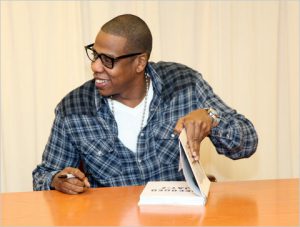Welcome!

Welcome to the Literature track in the English Specialization at NOVA! If you are interested in this track, you most likely enjoy reading from a variety of texts in different genres (short stories, poetry, novels, plays, graphic novels, lyrics, etc.) and thinking about the ideas in them and their relationship to yourself and the world. You also probably engage in discussions about what you’ve read with friends or family and hearing what they think about the text.
What Will I Do In The Literature Track?

The Literature track in the English Specialization invites you to keep following your passion through offering a wide variety of literature courses where you closely read, as well as deeply analyze, vigorously discuss, and present on and write about diverse texts in meaningful ways through applying different literary approaches that consider culture, history, and identity. For example, while analyzing texts in some courses, you may consider the historical moment in which the author wrote and how the message of the text responded to ideas of the time. In another course, you could examine closely how a writer engages with ideas concerning race, gender, sexuality, or class. You may also be encouraged to consider how your experiences and knowledge you bring to a text causes you to interact with and analyze it in new, exciting ways. Literature is a challenging exploration that raises questions and discussion during analysis and we as English faculty invite you to be an active participant in it with us!
What Courses Can I Take?

So you may now be wondering: what courses can I choose from when pursuing the Literature track? The Literature track has many diverse courses you can choose from. Some courses focus on a particular time period in history and culture. Examples of these would be: English 255: World Literature and English 258: African American Literature. Other courses study the characteristics of one specific genre such as English 236: Introduction to the Short Story, English 237: Introduction to Poetry and English 256: Literature of Science Fiction. Still other courses invite you to think about how texts can be reinterpreted and presented differently in another genre such as film. Examples of these would be: English 230: Mystery in Literature and Film and English 279: Film and Literature. When choosing your courses in the track, you want to select ones that really get you excited about pursuing what you are interested in!
Selection of Courses

Below is a list of courses you can take in the Literature track. You can find course content descriptions of these on the VCCS English course content summary page at: https://courses.vccs.edu/courses/ENG-English
ENG 225: Reading Literature: Culture and Ideas Please note this course has specific themes. Read the course notes to see themes of each section in course catalogue. Past and current course themes include: “Hip Hop Activist Literature: Memoir, Nonfiction, Poetry,” “Writing Yourself In: Memoir as the Personalization of Nonfiction Literature,” “Ethnic and Immigrant Literature,” and “Science Fiction.”
ENG 230: Mystery in Film and Literature
ENG 236: Introduction to the Short Story
ENG 237: Introduction to Poetry
ENG 245: British Literature
ENG 246: American Literature
ENG 250: Children’s Literature
ENG 255: World Literature
ENG 256: Literature of Science Fiction
ENG 257: Mythological Literature
ENG 258: African American Literature
ENG 271: The Works of Shakespeare
ENG 275: Women in Literature
ENG 279: Film and Literature
What Will I Learn That I Can Take With Me from Literature Courses?

No matter what literature courses you choose to complete, you will have meaningful knowledge you learn that you can transfer to other courses at NOVA, as well as English B.A. programs at other colleges or universities. After completing any of our literature courses, you will be able to:
· Demonstrate knowledge of the literary movements, writers, and/or texts covered in the course, including attention to literary techniques and innovations
· Analyze literary texts using appropriate vocabulary and strategies
· Explain connections between literary texts and related contexts
· Discuss literary texts from a variety of perspectives, reading for various meanings
· Support interpretations of literary texts with valid textual evidence and/or secondary sources
· Explain the ways in which literary texts reflect and/or resist cultural values and beliefs
· Engage literary study to explore meaningful questions about human experience
